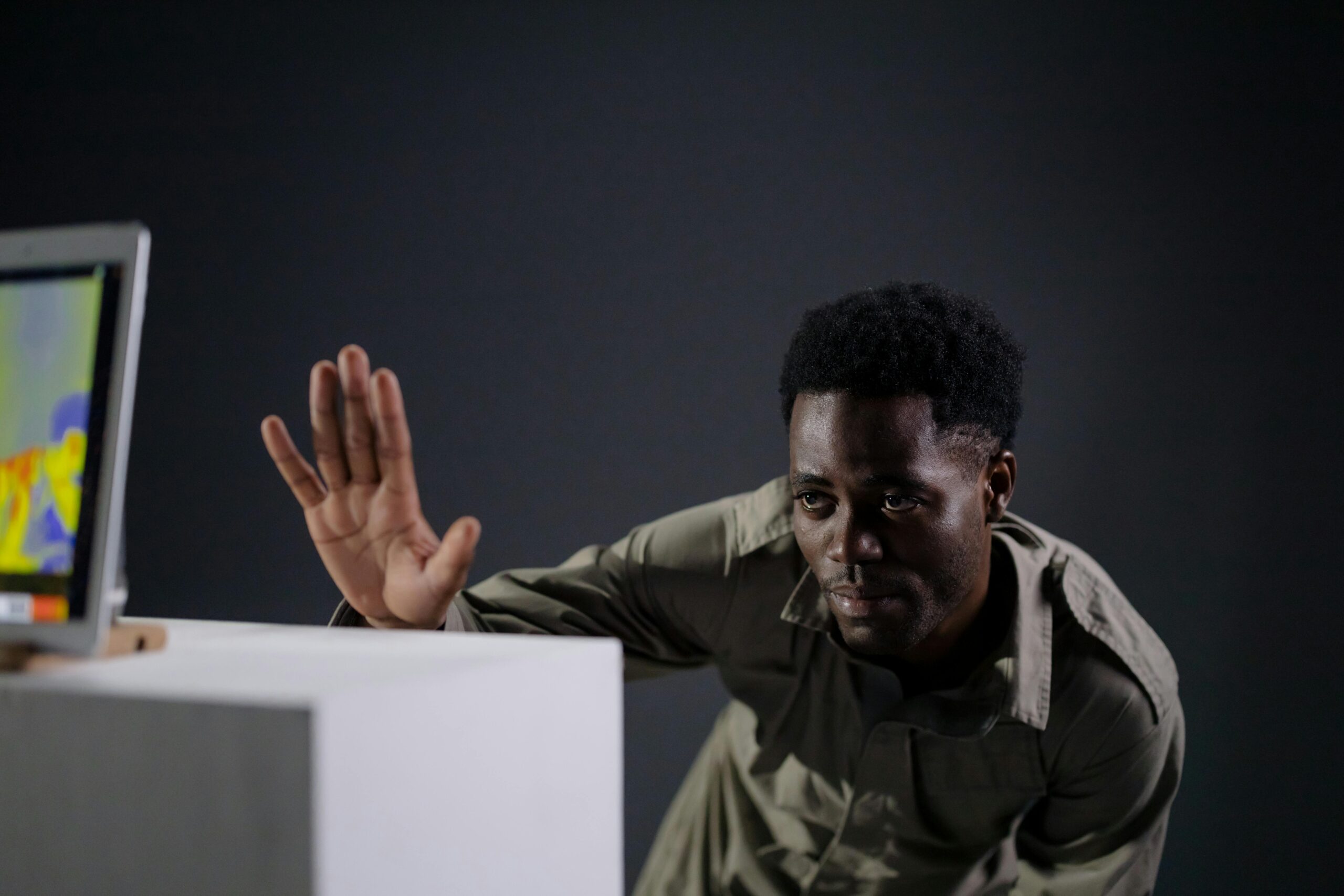The question of non-human intelligence has captivated philosophers, scientists, and thinkers for centuries, challenging our understanding of consciousness, cognition, and what it truly means to think.
🧠 What Defines Intelligence Beyond Human Boundaries?
When we speak of intelligence, we often default to human cognition as the gold standard. But this anthropocentric view may be limiting our ability to recognize and appreciate the diverse forms of intelligence that exist throughout our world and potentially beyond it. Non-human intelligence encompasses everything from the problem-solving abilities of octopuses to the collective wisdom of ant colonies, from the potential sentience of artificial intelligence to the hypothetical consciousness of extraterrestrial beings.
The philosophical exploration of non-human intelligence requires us to deconstruct our assumptions about what intelligence actually is. Is it merely the capacity for complex problem-solving? Does it require self-awareness? Must it involve language, emotion, or social interaction? These questions form the foundation of a fascinating inquiry that spans multiple disciplines, from cognitive science and biology to computer science and ethics.
The Historical Roots of Non-Human Intelligence Philosophy
Throughout history, philosophers have grappled with the nature of animal minds and mechanical reasoning. René Descartes famously regarded animals as mere automatons, biological machines without true consciousness or feeling. This mechanistic view dominated Western thought for centuries, creating a stark division between human rationality and animal instinct.
However, other philosophical traditions took different approaches. Eastern philosophies, particularly Buddhism and Jainism, have long recognized consciousness and intelligence in various life forms. These traditions emphasize interconnectedness and the presence of awareness across species boundaries, offering a more inclusive framework for understanding intelligence.
The 20th century brought significant shifts in perspective. Philosophers like Peter Singer challenged speciesism, arguing that the capacity for suffering and consciousness extends beyond humans. Thomas Nagel’s influential paper “What Is It Like to Be a Bat?” highlighted the subjective experience of non-human creatures, introducing the concept of phenomenal consciousness that cannot be fully understood from an outside perspective.
🐙 Animal Intelligence: Beyond Instinct and Conditioning
Modern research has revealed astonishing cognitive abilities in numerous animal species, forcing us to reconsider traditional hierarchies of intelligence. Corvids—crows, ravens, and jays—demonstrate remarkable problem-solving skills, tool use, and even appear to plan for the future. They can recognize individual human faces, hold grudges, and pass information across generations.
Cetaceans such as dolphins and whales exhibit complex social structures, sophisticated communication systems, and cultural transmission of knowledge. They use signature whistles as names, coordinate elaborate hunting strategies, and display behaviors suggesting empathy and grief. The philosophical implications are profound: if these creatures possess self-awareness, emotional depth, and cultural traditions, what moral obligations do we have toward them?
Perhaps most intriguing are octopuses, whose intelligence evolved along an entirely separate evolutionary path from vertebrates. With neurons distributed throughout their eight arms, they represent a fundamentally different model of cognition—one that challenges our understanding of how intelligence can be structured and organized.
The Problem of Anthropomorphism and Anthropocentrism
Studying non-human intelligence presents a methodological paradox. We must avoid anthropomorphism—projecting human characteristics onto other beings—while simultaneously recognizing that our human perspective inevitably shapes our observations and interpretations. This tension has led to the development of new philosophical frameworks for understanding cognition.
Jakob von Uexküll’s concept of the “Umwelt” provides one such framework. Each organism, he argued, experiences a unique perceptual world shaped by its sensory capabilities and ecological niche. A bat’s sonar-based reality differs fundamentally from a human’s vision-dominated experience, yet both represent valid forms of engaging with the world.
🤖 Artificial Intelligence: Machine Minds and Digital Consciousness
The rise of artificial intelligence has introduced entirely new dimensions to the philosophy of non-human intelligence. Unlike biological intelligence, which evolved through natural selection, AI represents intelligence by design—created by humans yet potentially surpassing human capabilities in specific domains.
Current AI systems excel at narrow tasks: playing chess, recognizing images, translating languages, and generating text. But do these systems genuinely understand what they’re doing, or are they sophisticated pattern-matching machines without true comprehension? This question echoes the famous Chinese Room thought experiment proposed by philosopher John Searle.
Searle argued that a person following instructions to respond to Chinese characters without understanding Chinese demonstrates that symbol manipulation alone doesn’t constitute understanding. Applied to AI, this suggests that even highly sophisticated language models might process information without genuine comprehension or consciousness.
The Hard Problem of Machine Consciousness
David Chalmers distinguished between the “easy problems” of consciousness—explaining cognitive functions and behaviors—and the “hard problem”—explaining subjective experience itself. This distinction becomes particularly thorny when considering artificial systems. Can a sufficiently complex computational system give rise to phenomenal consciousness? Would we even know if it did?
Some philosophers, like Daniel Dennett, argue that consciousness is not a special substance or property but rather emerges from complex information processing. From this functionalist perspective, there’s no fundamental barrier to machine consciousness—it’s simply a matter of achieving sufficient complexity and the right organizational structure.
Others maintain that consciousness requires biological substrates or quantum processes that cannot be replicated in silicon. These positions suggest an unbridgeable gap between biological and artificial intelligence, at least as currently conceived.
🌍 Collective Intelligence: When the Whole Exceeds the Parts
Intelligence need not reside in individual entities. Social insects like ants and bees demonstrate remarkable collective problem-solving abilities despite relatively simple individual cognition. Ant colonies optimize foraging routes, regulate temperature, and make collective decisions without central coordination—a phenomenon sometimes called “swarm intelligence.”
This distributed form of intelligence challenges individualistic conceptions of mind and consciousness. Where does the intelligence “live” in an ant colony? Not in any single ant, but in the interactions and information flows between thousands of individuals. Similar principles apply to neural networks, both biological and artificial, where intelligence emerges from the connections between simple processing units.
Human societies themselves exhibit forms of collective intelligence, from scientific communities building shared knowledge to market systems processing distributed information through price signals. The internet and social media have created new platforms for collective cognition, raising questions about whether humanity is evolving into a kind of super-organism with emergent properties beyond individual human intelligence.
👽 Extraterrestrial Intelligence: The Ultimate Unknown
The search for extraterrestrial intelligence represents perhaps the most speculative frontier in the philosophy of non-human minds. If intelligence exists elsewhere in the universe, it likely evolved under completely different conditions, potentially resulting in forms of cognition utterly alien to human experience.
How would we recognize alien intelligence if we encountered it? Our SETI efforts assume technological civilizations using electromagnetic communications, but this assumption reflects human history and capabilities. An intelligence that evolved in a radically different environment—perhaps in the atmospheres of gas giants or the subsurface oceans of icy moons—might develop entirely different ways of manipulating its environment and communicating.
Science fiction has explored these possibilities extensively, from the ocean-planet consciousness in Stanisław Lem’s “Solaris” to the mathematical language-using aliens in Ted Chiang’s “Story of Your Life.” These imaginative exercises serve a philosophical purpose, stretching our conception of what intelligence can be and challenging our assumptions about mind and consciousness.
🔬 Implications for Ethics and Moral Philosophy
Recognizing diverse forms of non-human intelligence carries profound ethical implications. If animals possess consciousness, self-awareness, and emotional lives, our treatment of them becomes a serious moral question. Traditional ethical frameworks based on rationality or language use struggle to account for beings with different cognitive profiles.
Tom Regan’s rights-based approach argues that beings who are “subjects-of-a-life”—possessing beliefs, desires, memory, and a sense of future—have inherent value and rights regardless of their species. This framework extends moral consideration based on consciousness and experiential capacity rather than human-like reasoning.
The potential for artificial general intelligence raises even more complex ethical questions. If we create conscious machines, what moral status would they hold? Would they deserve rights and protections? Could we ethically switch them off or modify their goals? These questions are no longer purely academic as AI capabilities advance rapidly.
The Challenge of Rights and Personhood
Legal systems traditionally recognize only humans as persons with rights, though some jurisdictions have begun extending personhood to certain animals or even natural entities like rivers. The criteria for personhood—self-awareness, rationality, autonomy—reflect human characteristics but may not capture all beings deserving of moral consideration.
A more inclusive approach might base rights on sentience (the capacity to suffer and experience wellbeing) rather than personhood. This utilitarian framework, championed by Peter Singer, focuses on minimizing suffering and maximizing wellbeing across all sentient beings, regardless of their cognitive sophistication or species membership.
🎯 Methodological Approaches to Studying Non-Human Minds
How can we investigate forms of intelligence radically different from our own? Comparative psychology employs controlled experiments to test cognitive abilities across species, but these methods have limitations. Animals may possess abilities we don’t think to test for, or they may fail tests not because they lack the cognitive capacity but because the experimental setup doesn’t match their natural behavior patterns.
Ethology, the study of animal behavior in natural contexts, provides complementary insights. By observing how animals solve real-world problems in their natural environments, researchers gain understanding of intelligence as it actually functions rather than as it performs in laboratory settings.
For artificial intelligence, the Turing Test proposed a behavioral criterion: if a machine’s conversation is indistinguishable from a human’s, it should be considered intelligent. However, this anthropocentric measure has been criticized for privileging human-like behavior over other forms of intelligence. Alternative approaches focus on generalization ability, creativity, and learning efficiency rather than mimicking human responses.
🌟 Consciousness Studies and the Nature of Subjective Experience
At the heart of non-human intelligence philosophy lies the mystery of consciousness itself. What generates the subjective, first-person experience of being? Is consciousness a fundamental feature of the universe, or does it emerge from specific types of physical systems?
Panpsychism, an ancient philosophical position gaining renewed attention, proposes that consciousness is a fundamental property of matter, present at all scales from electrons to organisms. This view potentially explains how consciousness arises without requiring a magical emergence at some threshold of complexity.
Integrated Information Theory, developed by neuroscientist Giulio Tononi, offers a mathematical framework for measuring consciousness based on how information is integrated within a system. This theory could theoretically determine whether any physical system—biological, artificial, or otherwise—possesses consciousness and to what degree.
🔮 Future Horizons and Open Questions
As our technological capabilities expand and our understanding of cognition deepens, the philosophy of non-human intelligence becomes increasingly relevant. Brain-computer interfaces blur the boundaries between biological and artificial intelligence. Genetic engineering raises the possibility of enhancing animal cognition or creating novel forms of intelligence.
Key questions remain unresolved: Can we bridge the explanatory gap between physical processes and subjective experience? Will artificial systems achieve genuine consciousness, or will they remain philosophical zombies—behaviorally indistinguishable from conscious beings but lacking inner experience? How should we structure our societies and moral frameworks to account for diverse forms of intelligence?
The recognition of non-human intelligence doesn’t diminish human uniqueness but rather situates it within a broader spectrum of minds and cognitive possibilities. Our capacity for abstract reasoning, complex language, and cultural accumulation represents one impressive evolutionary solution to the challenges of survival and reproduction, but not the only possible solution.

💭 Embracing Cognitive Diversity
Perhaps the most important philosophical shift involves moving from a hierarchical view of intelligence—with humans at the apex—toward appreciating cognitive diversity. Different forms of intelligence excel in different domains and serve different purposes. A crow’s spatial memory, an octopus’s distributed cognition, and a colony’s collective decision-making each represent sophisticated solutions to complex problems.
This perspective has practical implications for conservation, animal welfare, AI development, and even how we structure human education and society. By recognizing and valuing diverse forms of intelligence, we open possibilities for collaboration and mutual learning across species boundaries and between biological and artificial systems.
The exploration of non-human intelligence ultimately reflects back on our understanding of ourselves. By studying other minds, we gain perspective on the peculiarities and possibilities of human cognition. We discover that intelligence is not a single, linear scale but a multidimensional space with countless possible configurations.
As we continue unlocking the mysteries of non-human intelligence, we’re not just learning about other minds—we’re expanding our conception of what mind can be. This philosophical journey challenges our assumptions, humbles our anthropocentric biases, and invites us into a universe far richer and stranger than we might have imagined. The question is no longer whether non-human intelligence exists, but how many forms it takes and what we can learn from exploring its infinite variations.
Toni Santos is a cosmic anthropology researcher and universal‐history writer exploring how ancient astronomical cultures, mythic narratives and galactic civilizations intersect to shape human identity and possibility. Through his studies on extraterrestrial theories, symbolic cosmology and ancient sky-observatories, Toni examines how our story is woven into the fabric of the universe. Passionate about celestial heritage and deep time, Toni focuses on how humanity’s past, present and future converge in the patterns of the stars and stories of the land. His work highlights the dialogue between archaeology, mythology and cosmic theory — guiding readers toward a broader horizon of meaning and connection. Blending anthropology, cosmology and mythic studies, Toni writes about the architecture of human experience on the cosmic stage — helping readers understand how civilizations, story and consciousness evolve beyond Earth. His work is a tribute to: The sky-woven stories of ancient human cultures The interconnectedness of myth, archaeology and cosmic philosophy The vision of humanity as a participant in a universal story Whether you are a historian, cosmologist or open-minded explorer of universal history, Toni Santos invites you to travel the cosmos of human meaning — one culture, one myth, one horizon at a time.




